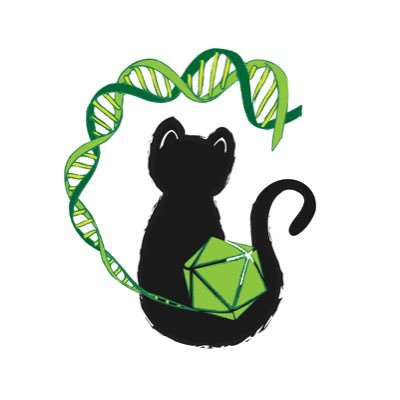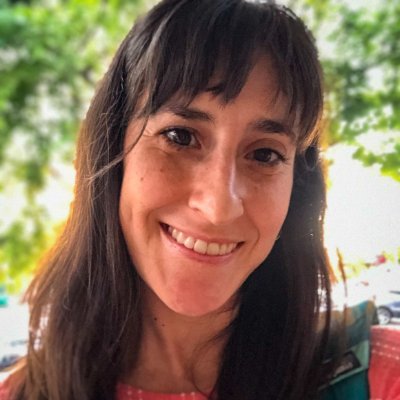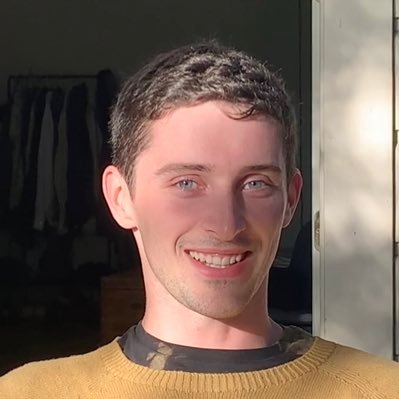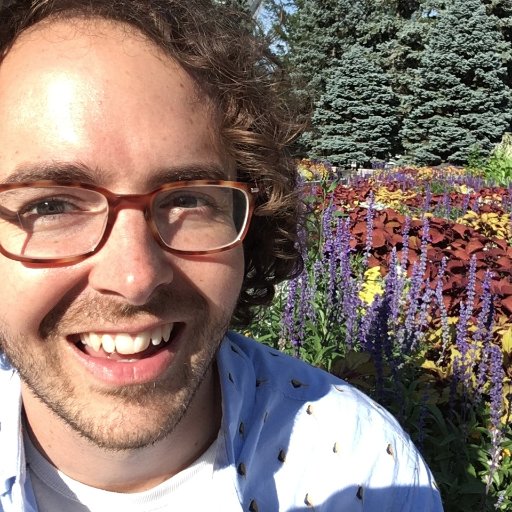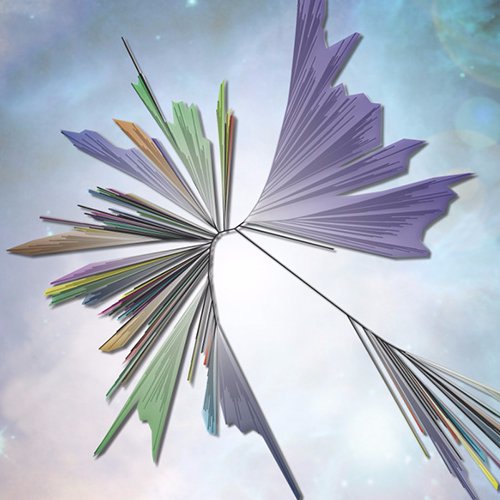
Maria Lukarska
@MariaLukarska
Followers
267
Following
1K
Media
5
Statuses
153
Protein engineering | CRISPR | gene editing | polymerases | @LSRFdtn Postdoc at @UCBerkeley in @SavageCatsOnly
Berkeley, CA
Joined April 2018
Check out our pre-print on ProteinGuide, a new method for conditioning protein generative models on experimental data! Thanks to the amazing team: @junhaobearxiong, Hunter, @jlistgarten, @Ishan__Gaur and @loltrogge! @SavageCatsOnly
Guide your favorite protein generative model with experimental data? Meet ProteinGuide - a method to condition pre-trained models on properties without retraining. We validated it both in silico by guiding ProteinMPNN and ESM3 on 3 tasks and in vitro by engineering base editors.
1
5
25
Congrats to team TnpB @rachelfweissman and @BW_Thornton for getting this story out! Not just one, but two DMS scans covering both protein and RNA, with plenty of insights on the sequence-function landscape and some important engineering successes!
What's better than 1 deep mutational scanning (DMS) library? 2! In a new pre-print @BW_Thornton and @rachelfweissman et al. map the mutational landscape of ISDra2 TnpB protein and reRNA and leverage these datasets to engineer highly active variants (1/9)
0
2
12
hey #teamtomo if you are looking to add to your toolkit for molecular identification inside cells, our preprint is now out!
ExoSloNano: Multi-Modal Nanogold Tags for identi-fication of Macromolecules in Live Cells & Cryo-Electron Tomograms https://t.co/PPFr7TlDrJ
#biorxiv_biophys
3
26
92
How does Hachiman work, and what can it teach us about immunity? Our structural and functional characterization of the Hachiman defense system is online: https://t.co/5IaYbegXAK Thanks to co-lead @ben_a_adler, @Emy_nim & coauthors at @doudna_lab. @igisci @UCB_Chemistry @HHMINEWS
0
20
48
Part of my postdoctoral work in the Ronald lab is on bioRxiv! We applied directed evolution to engineer a new-to-nature immune recognition range in a rice immune receptor
Directed evolution of a plant immune receptor for broad spectrum recognition of pathogen effectors https://t.co/GoSvBQpIEq
#biorxiv_plants
4
8
32
Our paper on the molecular basis of influenza virus genome replication as well as host adaptation is out:
nature.com
Nature Communications - The influenza virus genome replication complex comprises two viral polymerases and host factor ANP32. Structural studies reveal the complex architecture for influenzas A and...
2
13
46
I can't think of anyone who deserves this award more than @thibaut_brunet! Check out this spotlight to learn about his scientific journey and be on the watchout for more groundbreaking science coming from his lab!
Meet EMBL alumnus Thibaut Brunet, winner of the 2024 John Kendrew Young Scientist Award! He shares his scientific journey from a childhood passion for dinosaurs and nature to discovering a new species of aquatic microbes. Read more here: https://t.co/ME6XVM3YPq
1
0
7
I'm so excited to see this project come to completion! If you want to dig into the mechanism of influenza virus cap-snatching, check out the preprint!
Thrilled to share our new preprint on the molecular mechanism of influenza virus cap-snatching! 🦠🧬 https://t.co/sDkPHn69ki We determined structures showing how flu polymerase hijacks host RNA polymerase II to steal RNA caps, a crucial step in viral gene expression.
1
1
13
I'm very happy to share this paper where we characterized the mechanisms of inhibition of Wolbachia's LeuRS editing domain leading to disruption of its symbiosis with parasitic worms.
A Targeted Strike to the Microbiota of Pathogen Worms Infecting Millions Worldwide. Work by G.Hoffmann @MariaLukarska @MaleneRJensen Collab @IAB_Officiel @IBS_Grenoble @LSTMnews @esrfsynchrotron @Inserm @CNRS Funding @ANR @Fondation_BS @BillMelindaGates
https://t.co/HOkSfhVGDl
2
1
26
This is such great news for Bulgarian science!
We welcome Bulgaria as EMBL’s newest prospect member state! This is an important milestone that opens up new opportunities for mutual exchange and collaboration. https://t.co/UqN00b1uU1
0
0
33
I'm very excited to share this paper that I contributed to during my short stay at the @LGS_IMB, lead by the exceptional @radaleksandrov! If you want to know more about the mechanism of PARP inhibitors, check out the paper and the thread below!
We are happy to share our latest paper “A unified mechanism for PARP inhibitor-induced PARP1 chromatin retention at DNA damage sites in living cells”, out today in @CellReports. #PARP1 #PARPinhibitor #GenomicStability Hopefully not a boring thread ↓ https://t.co/MCU6BsbJRQ
1
0
12
Do you want to learn more about the most abundant enzyme on the planet? How about figuring out how every single point mutation is affecting all its biochemical properties? Check out this updated preprint by @NoamPrywes et al.!
What limits rubisco function? Is it the chemical mechanism? Evolution? In an updated pre-print @prywes et. al explore this question by assaying >99% of single amino acid mutants in Form II rubisco (1/7)
1
3
24
How does the flu polymerase replicate RNA and adapt to hosts? Read our pre-print: Structures of influenza A and B replication complexes explain avian to human host adaption and reveal a role of ANP32 as an electrostatic chaperone for the apo-polymerase
biorxiv.org
Replication of influenza viral RNA depends on at least two viral polymerases, a parental replicase and an encapsidase, and cellular factor ANP32. ANP32 comprises an LRR domain and a long C-terminal...
2
9
49
Do you need a billion parameters and millions of sequences for #proteindesign? Maybe not! See our paper: https://t.co/tUqcVxKowL We show that interpretable, non-autoregressive structure-based protein design can work! Original thread:
3
31
190
@cyrus_tau and I are so excited to share our work on developing a CRISPR protein-guided, trans-splicing system for making versatile RNA edits!!! See the highlights in Cyrus' thread and the preprint for details!
.@sitaritapita and I are excited to share RESPLICE, a new RNA-programmable mode of editing that leverages RNA targeting CRISPR proteins and the endogenous spliceosomal machinery to enable versatile RNA edits in human cells! (1/12) https://t.co/7VjKtA65ub
4
9
32
Excellent summary of our recent paper in @cellhostmicrobe. Thank you to @melissa_y_chen and @Cara_Haney for their thoughtful piece.
It takes a plant village to raise a microbiome. @melissa_y_chen @Cara_Haney discuss @bkoskella work on host history & #plant #microbiome inheritance. Transmission from same vs diff plant species results in microbiota specialization vs host generalism https://t.co/rydxkbTSLm
1
4
26
What controls the size of α-carboxysomes?? Click the link below⬇️ to find out NOW!
pubs.acs.org
Carboxysomes are protein microcompartments that function in the bacterial CO2 concentrating mechanism (CCM) to facilitate CO2 assimilation. To do so, carboxysomes assemble from thousands of constit...
1
7
16
Fascinating work on a new viral polymerase by the Cusack group!
The Cusack group shares in a @nature paper cryo-EM structures of the Tilapia Lake virus's RNA polymerase, a fish pathogen. It shows similar domains and functionality to the distantly related influenza virus' polymerase, despite being only 60% the size. https://t.co/S5ZKixIIA0
0
1
15
New research from @AndrejaKust and the @Dr__Diamond lab on cyanobacterial communities! Which microbes like to live with Cyanobacteria in model communities? Take a look here and find out:
biorxiv.org
Cyanobacteria are central to biogeochemical cycling, climate change, and eutrophication. While they readily develop associations with environmental microorganisms, the question of whether they...
0
14
46

